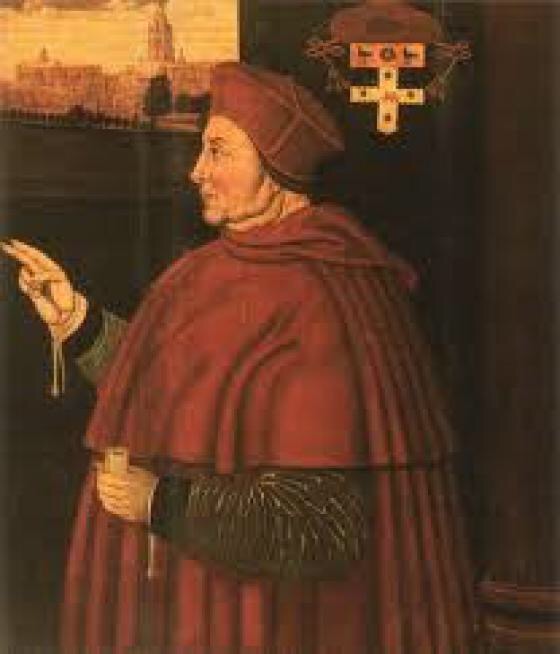
On This Day 24th December 1514
On 24th of December 1514, Thomas Wolsey was appointed Lord Chancellor of England. Wolsey, of undistinguished birth, had shown early academic and political skills and had entered the household of Henry VII in around 1505. On the accession of Henry VIII, Wolsey rapidly became one of his most important councillors. His organisational skills were particularly appreciated during the French campaign of 1512. For the next 17 years Wolsey was to be second only to the King in power and influence in England.
Thomas Wolsey is our person of the month of January. I’ll be posting all aspects of his life especially during the time of his influence.
Subscribe/Follow this blog so you don’t miss out on all the new content to come! In 2016, I’ll be implementing guest articles, biographies, book reviews and much, much more! For a bit of a taste, below is some aspects of Cardinal Wolsey I will include on his being Person of the Month:
Guest Article
‘Hampton Court Palace: Wolsey’s Masterpiece’ by Daniel Jackson
We are delighted to have a Guest Article from Daniel Jackson, a Curator of Historic Buildings for Historic Royal Palaces. Daniel tells us about the history and construction of Wolsey’s great masterpiece on the Thames that became a Royal Palace and an icon of the Tudor age.
Life Story
Thomas Wolsey rose from being the son of an Ipswich butcher to being called the Arbiter of Europe and a credible candidate for the Papacy. Whilst he was not the first man to climb to power through the Church, he was one of the most talented, ambitious and controversial figures to wield power in England. Henry VIII’s right hand man for fifteen years, his eventual fall was as precipitous as his rise.
Following in the Footsteps
Wherever Wolsey went, whether on a diplomatic mission to France or the Empire or merely to carry out his daily functions as Privy Councillor and Lord Chancellor, his journeyings were occasions of pomp and pageantry.
Wolsey: The Life of King Henry VIII’s Cardinal
Wolsey was a byword in his own time for magnificence and extravagance. He understood the importance of spectacle and outward appearance as a tool of power and brought this to bear in his building programmes and his diplomatic triumphs.
* Thomas Wolsey: Patron of Education
* The Field of Cloth of Gold
* Thomas Wolsey: In History & Literature
Book Reviews
Wolsey is the subject of one of the earliest biographies ever written, and then a couple of works in the 1970s, including the best academic reference, The King’s Cardinal by Peter Gwyn.
The most recent biography of Wolsey is Wolsey: The King’s Cardinal by John Matusiak.



